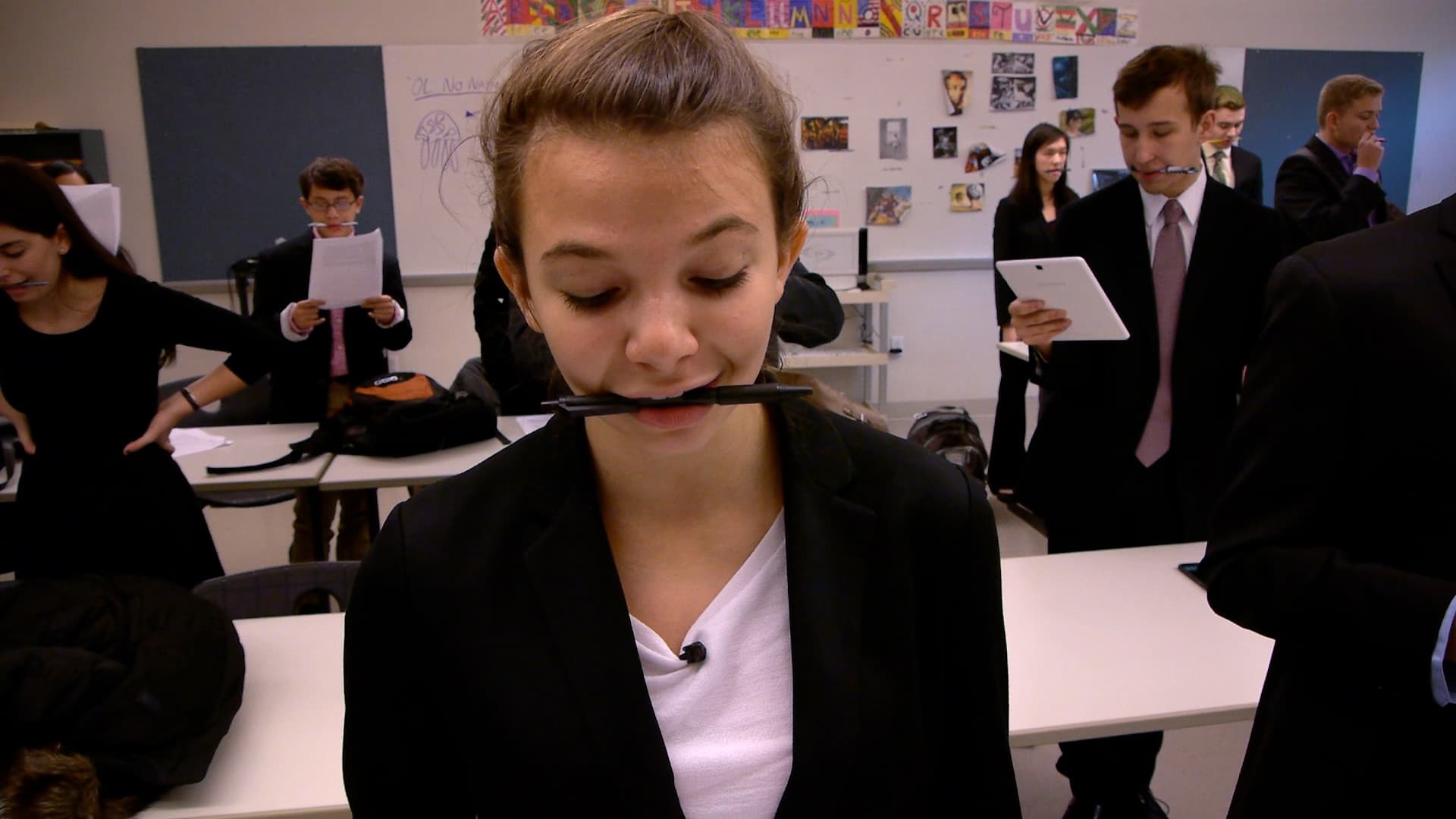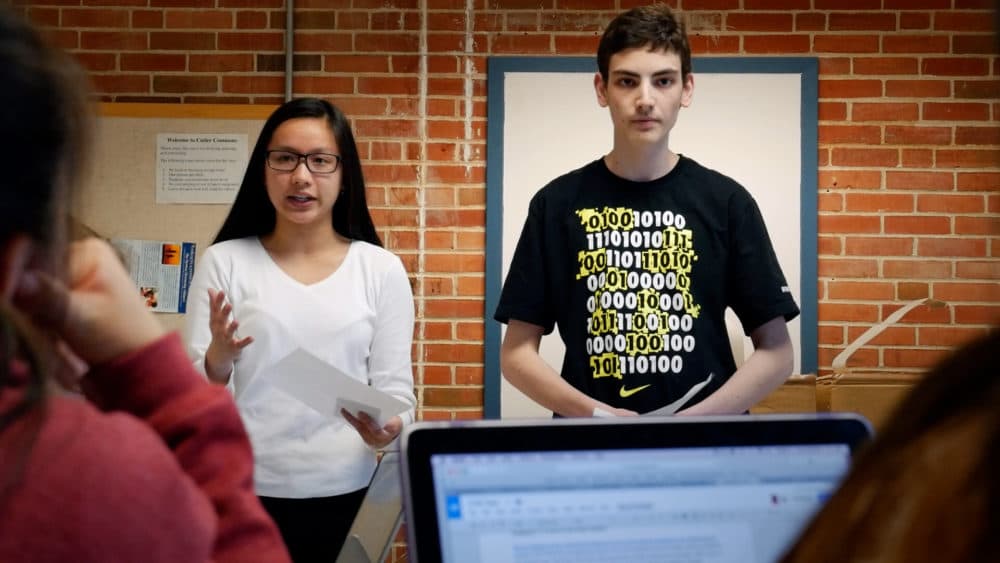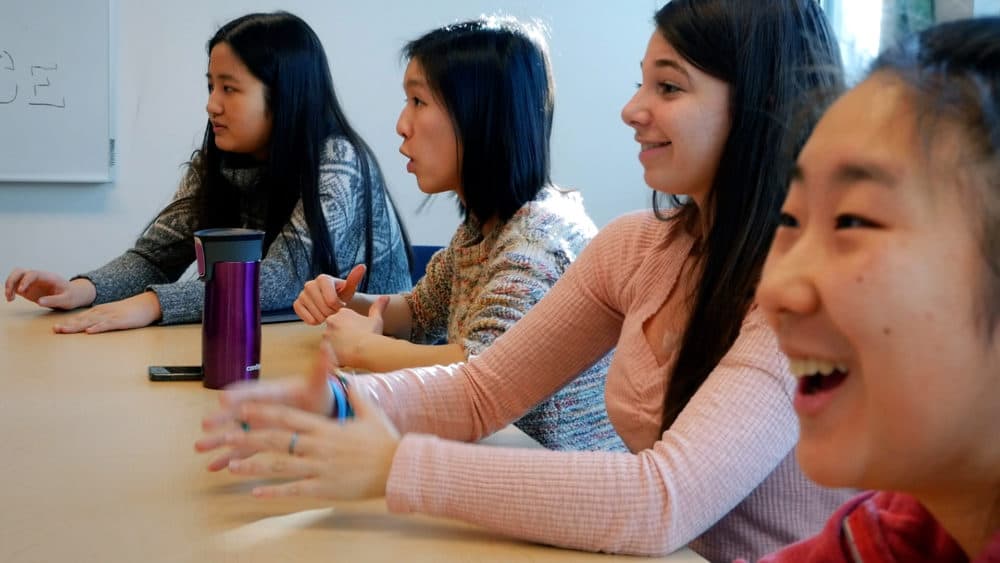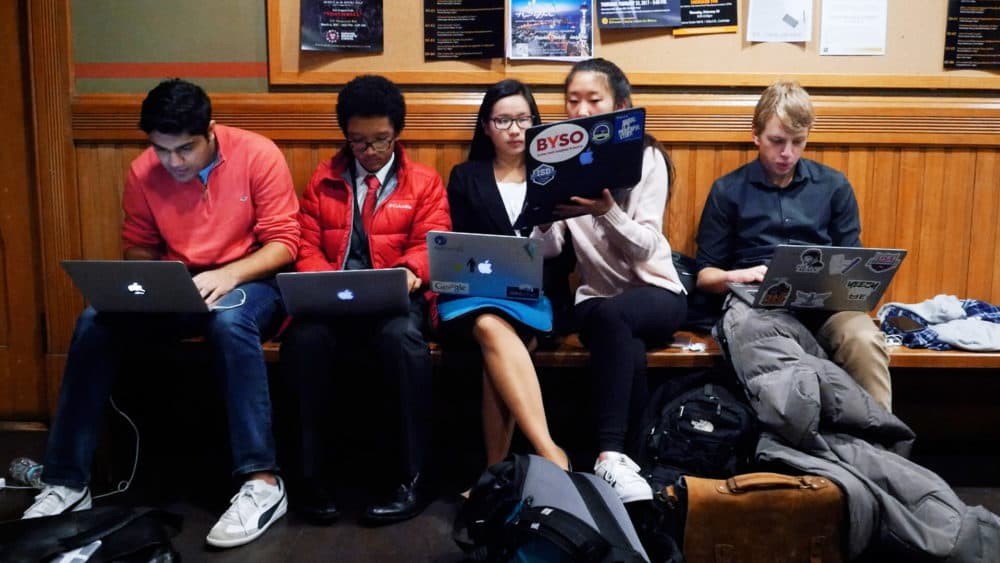Advertisement
'Girl Talk' challenges perceptions of girls’ voices in Massachusetts high school debate

A teenage girl stands in front of a packed classroom, rifling off stats with breathtaking conviction. Midway through a lightning-paced argument about arms sales, in voiceover she describes how high school debate judges “vote for who looks like a winner.” But, she says, “looking like a winner, oftentimes isn’t very feminine.”
Public forum debate — the fast and ferocious kind practiced by about 40 high schools in Massachusetts — can boggle the senses. No one knows this better than Jamaica Plain filmmaker Lucia Small, who has dedicated the last eight years to capturing scenes like the one described above for the world premiere of her new documentary “Girl Talk.”
Small says that a theme running through her work has always been “the resonance of girls’ voices, the resonance of a female point of view, a female voice.” After making three insightful first-person documentaries, a long-held curiosity about why some young women start to speak up, just as others shut down, prompted her to start filming five girls on the Newton South High School debate team.
“We just wanted to do a year in the life,” she explains. Then the filmmaking team quickly realized, “Okay, even though these girls are really accomplished and really ambitious and really smart, they still are a lot less confident than the boys.”

But pinpointing that disparity isn’t necessarily easy. At one point in the film, debater Gaby says that debate has taught her to question everything. Likewise, for Small, embedding herself on and off with the debaters became a longitudinal study that asks many questions, mainly–in a contest supposedly free of gendered divisions, why do more boys win?
Small says that figuring out how to assess bias or implicit bias, and how to translate that to the screen became a motivating challenge. She hopes viewers consider how they “maybe become the judge and have to check their own biases and their own preconceptions.”
In the film, girls describe receiving criticism for wardrobe and voice pitch. They exchange tips on how to come off as assertive without tipping the scales. But that feels impossible. One of the debaters, Bella, recalls how a decision to wear pants, in response to getting multiple comments about her short skirts, made her feel “less girl like.” She found herself trying to strike a balance that doesn’t exist.
Advertisement

No stranger to exploring gray areas onscreen, until “Girl Talk,” Small took an active, sometimes on-camera role in her films. She candidly probes her father’s ego in 2002’s “My Father, the Genius,” race and class relations in the aftermath of Hurricane Katrina in 2007’s “The Axe in the Attic,” and her filmmaking partner’s fatal diagnosis in 2014’s “One Cut, One Life.” She says that “putting your person up onscreen, larger than life opens up a whole world of opinion and criticism and judgment,” which she finds fascinating.
Like debate, women who make first-person documentaries receive less acclaim, according to Abby Sun, curator for the Boston non-fiction series, The DocYard. When she surveyed the field, she found that most of the celebrated filmmakers, both nationally and internationally, are male. That’s one of many reasons why Sun devoted a retrospective to Small in 2020. Notably, Sun adds, “[Small’s] films are amazing. I think that they're incredibly honest, deep, funny, insightful looks at many difficult things that happen in all of our lives.”

While making “Girl Talk,” Small endured not just the pandemic but also cancer treatment. She says having support from a tight-knit group of friends, family, and film collaborators became crucial to her finishing. She acknowledges the irony that her last film explored similar subject matter through co-director Ed Pincus’s perspective but decided early on not to document her cancer ups and downs. Instead, she says she felt an urgency to complete “Girl Talk.”
Like our lives, Small’s films don’t deliver simple causes or fixes. But they frame female voices as sources of strength. The inequities faced by the debaters in “Girl Talk” make them all the more determined to train the next generation. In a scene where one group of debaters moves from novice into leadership roles, one of the featured debaters, Anika, implores her peers to take responsibility.
“We coach each other. We perpetuate a good team dynamic. We promote women into positions of power and then try to have everybody speak up,” she says. “It’s really up to you guys to continue doing that.”
Together with “Girl Talk,” Lucia Small and the Newton South debate team make a sound case.
"Girl Talk" premieres on Sunday, May 1, at the Somerville Theatre as part of the Independent Film Festival Boston.
This segment aired on April 29, 2022.
